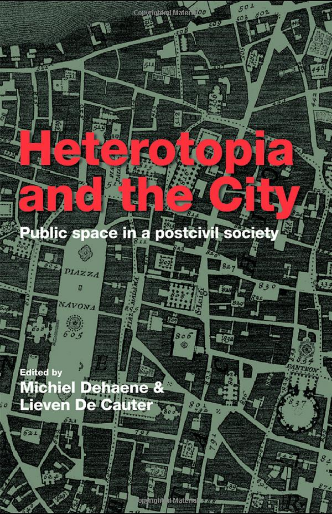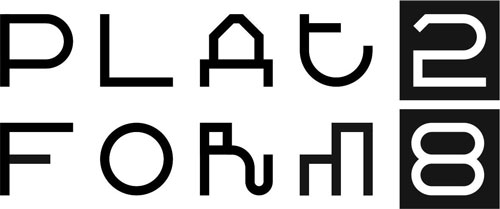
Heterotopia and the City: Public Space in a Postcivil Society
July 2008
By Michiel Dehaene and Lieven De Cauter
Heterotopia, literally meaning ‘other place’, is a rich concept in urban design that describes a space that is on the margins of ordered or civil society, and one that possesses multiple, fragmented or even incompatible meanings. The term has had an impact on architectural and urban theory since it was coined by Foucault in the late 1960s but it has remained a source of confusion and debate since. Heterotopia and the City seeks to clarify this concept and investigates the heterotopias which exist throughout our contemporary world: in museums, theme parks, malls, holiday resorts, gated communities, wellness hotels and festival markets.
With theoretical contributions on the concept of heterotopia, including a new translation of Foucault’s influential 1967 text, Of Other Space and essays by well-known scholars, the book comprises a series of critical case studies, from Beaubourg to Bilbao, which probe a range of (post)urban transformations and which redirect the debate on the privatization of public space. Wastelands and terrains vagues are studied in detail in a section on urban activism and transgression and the reader gets a glimpse of the extremes of our dualized, postcivil condition through case studies on Jakarta, Dubai, and Kinshasa.
Heterotopia and the City provides a collective effort to reposition heterotopia as a crucial concept for contemporary urban theory. The book will be of interest to all those wishing to understand the city in the emerging postcivil society and post-historical era. Planners, architects, cultural theorists, urbanists and academics will find this a valuable contribution to current critical argument.
- Bracket 2: Goes Soft
- Cities: X Lines: Approaches to City and Open Territory Design
- City Sense and City Design: Writings and Projects of Kevin Lynch
- City Transformed: Urban Architecture at the Beginning of the 21st Century
- Collage City
- Combinatory Urbanism : A Realignment of Complex Behavior and Collective Form
- Critical Spatial Practice #6: The Roundabout Revolutions
- Delirious New York: A Retroactive Manifesto For Manhattan
- Designing Cities
- Event Cities 02
- Event Cities 03
- Event Cities 04
- Fast-Forward Urbanism: Rethinking Architecture's Engagement with the City
- Garden Cities of Tomorrow
- Going Public: Public Architecture, Urbanism And Interventions
- Heterotopia and the City: Public Space in a Postcivil Society
- La rue est à nous... tous! ( The street belongs to all of us! )
- Made in Tokyo: Guide Book
- Masterplanning the Adaptive City: Computational Urbanism in the Twenty-First Century
- Measuring The Non-measurable 02: Tokyo/bangkok/singapore
- Measuring The Non-measurable 03: Mn'm Workbook 1
- Measuring The Non-measurable 04: Mn'm Workbook 2
- Measuring The Non-measurable 05: Post-souvenir City
- Measuring The Non-measurable 06: Subjectivities In Investigation Of The Urban
- Measuring The Non-measurable 07: Mn'm Workbook 3
- Measuring The Non-measurable 08: In The Search Of Urban Quality
- Megastructure Reloaded: Visionary Architecture and Urban Planning of the 1960s Reflected by Contemporary Artists
- Monu #13 Most Valuable Urbanism
- Monu #14 Editing Urbanism
- Monu #15 Post-ideological Urbanism
- Monu #16 Non-urbanism
- Monu #17 Next Urbanism
- Monu #18 Communal Urbanism
- Monu #19 Greater Urbanism
- Monu #20 Geographical Urbanism
- Monu #21 Interior Urbanism
- Monu #22 Transnational Urbanism
- New City Spaces
- Points + Lines: Diagrams and Projects for the City
- Public Space
- Recombinant Urbanism: Conceptual Modeling in Architecture, Urban Design and City Theory
- S,M,L,XL
- Self-Sufficient City
- Small Scale: Creative Solutions for Better City Living
- Sociopolis Project for a City of Future
- System City: Infrastructure and the Space of Flows
- The City In The City: Berlin: A Green Archipelago
- The City, Seen as a Garden of Ideas
- The Death And Life Of Great American Cities
- The Endless City: The Urban Age Project by the London School of Economics and Deutsche Bank's Alfred Herrhausen Society
- The Exposed City: Mapping the Urban Invisibles
- The Public Chance: New Urban Landscapes
- The Self-Sufficient City: Internet has changed our lives but it hasn't changed our cities, yet.
- The Superlative City: Dubai and the Urban Condition in the Early Twenty-First Century
- Urban Future Manifestos
- Urban Intensities: Contemporary Housing Types And Territories
- Urban Solutions: Building Solutions, Green Solutions, Culture and Research
- Urbanity: Twenty Years Later: Projects for Central European Capitals
- Verb Connection
- Writing Urbanism: A Design Reader (The ACSA Architectural Education Series)
- Young-Old: Urban Utopias of an Aging Society


